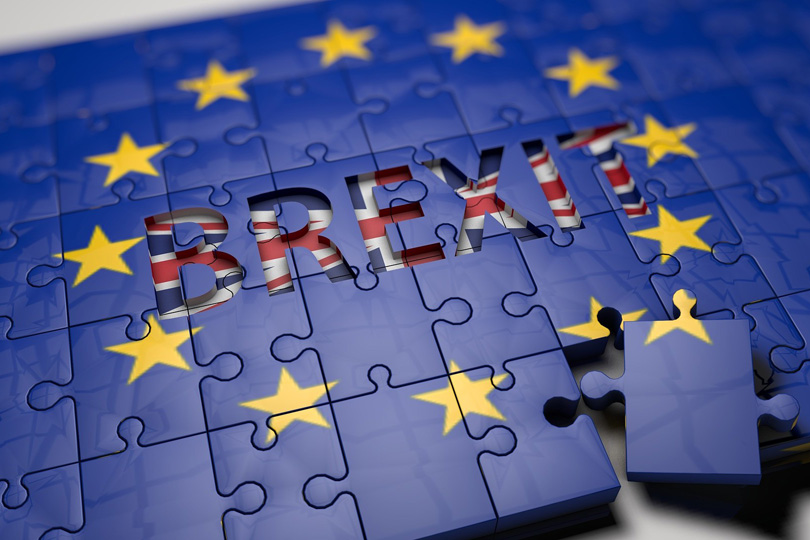Charles Tannock
Perhaps the recent attack on a former Russian agent in a quiet English country town will be enough to show Brexiteers that a “Britain alone” is a “Britain vulnerable.” But it is also possible that by the time UK nationalists discard their ideological blinders, it will be too late.
Some moments in history are steeped in irony. To glimpse a current example, look no further than the United Kingdom. As the Brexit negotiations with the European Union approach a tipping point – this month’s European Council meeting – the British government is seeking its scorned European partners’ help in its dispute with Russia over the attempted murder of the former Russian double agent Sergei Skripal and his daughter in Salisbury, England.
But even before the brazen attack on the Skripals – targeted with the Soviet-designed nerve agent Novichok – Prime Minister Theresa May had become more forthright in highlighting the values and interests shared by the UK and the EU, including with regard to security and defense. Indeed, at last month’s Munich Security Conference, she proposed a “deep and special partnership” on such matters.
In May’s preferred scenario, the UK would continue to participate fully in EU agencies like EUROPOL, while upholding European Arrest Warrants (EAWs). Moreover, the UK would maintain its involvement in existing and future EU Common Security and Defense Policy (CSDP) missions, and coordinate with the EU on sanction regimes under the Common Foreign and Security Policy (CFSP).
The attack on the Skripals has surely reinforced May’s interest in ensuring strong security cooperation after Brexit. The kind of external threat that the attack represented is best addressed in cooperation with allies. But can the UK’s allies take May seriously?
Those “who threaten our security,” she said in Munich, “would like nothing more than to see us fractured...and to see us put debates about mechanisms and means ahead of doing what is most practical and effective in keeping our people safe.” Then, after reiterating that the UK had made a legitimate and democratic decision to leave the EU, she concluded that the ball is the EU’s court. Not to accept her generous offer of close security cooperation would, in her words, amount to putting “political doctrine and ideology” first.
The irony of May’s stance has not been lost on the 27 EU states that the UK is leaving behind. After all, by casting doubt on the unity of Europe – and, indeed, the entire West – Brexit itself is causing serious damage to European security, all for the sake of political doctrine and ideology.
To be sure, hardline Brexiteers like Trade Minister Liam Fox claim that the only external relationship the UK needs to buttress its security is NATO, led by the United States. Yet while NATO will obviously remain the paramount source of security for all of Europe, no one should be willing to entrust their security to US President Donald Trump, who seems to have more contempt for allies than for adversaries like Russia’s Vladimir Putin. As the intelligence chiefs of Britain, France, and Germany warned in a little-noticed joint statement released in Munich, any breakdown in security cooperation between the UK and the EU will have dire consequences.
But May cannot expect to maintain the UK’s current level of security cooperation with the EU, especially in the context of the otherwise “hard” Brexit she envisages. When the UK departs from the EU, it will lose its right to shape the institutional frameworks that have long buttressed its security. This leaves May with two choices: either she can leave those frameworks behind – a highly risky move – or she can accept, at least for the most part, the EU’s terms.
For example, the legal framework for security-related data must also cover commercial data. If the UK can tolerate giving jurisdiction in this area to a European high court, as May’s Munich speech seems to suggest, why not in other areas? The European Court of Justice has an impeccable reputation as an independent judicial body – one that has fairly defended the UK’s own interests many times.
Such an approach would generate significant goodwill in the negotiations. This, together with the UK’s considerable security-related assets and expertise, would create space for the country to carve out unique concessions from the EU, such as full-time observer status in the EU’s influential Political and Security Committee.
Whether or not such forms of cooperation – essential to ensuring security in both the UK and the EU – are realized, however, is far from certain. Though May now seems to hold a more realistic view of the security risks Brexit poses, others in her party remain obstinate.
For example, Owen Paterson, a former Conservative cabinet minister, recently suggested doing away with the Good Friday Agreement, which has delivered two decades of peace to Northern Ireland – a highly reckless statement, given the political sensitivities that the Brexit vote triggered in Ireland. Other Brexiteers, like Environment Minister Michael Gove, are also long-time skeptics of the Good Friday accords. This suggests that, in the eyes of Brexit ideologues, security must take a back seat to their nationalist dreams.
Perhaps the recent attack on a former Russian agent in a quiet English country town will be enough to remove the ideological blinders from more Brexiteers, showing them that a “Britain alone” is a “Britain vulnerable.” But it is also possible that by the time the UK’s citizens and leaders see Brexit from their allies’ perspective – as a selfish and destructive act of betrayal – it will be too late.







Comments